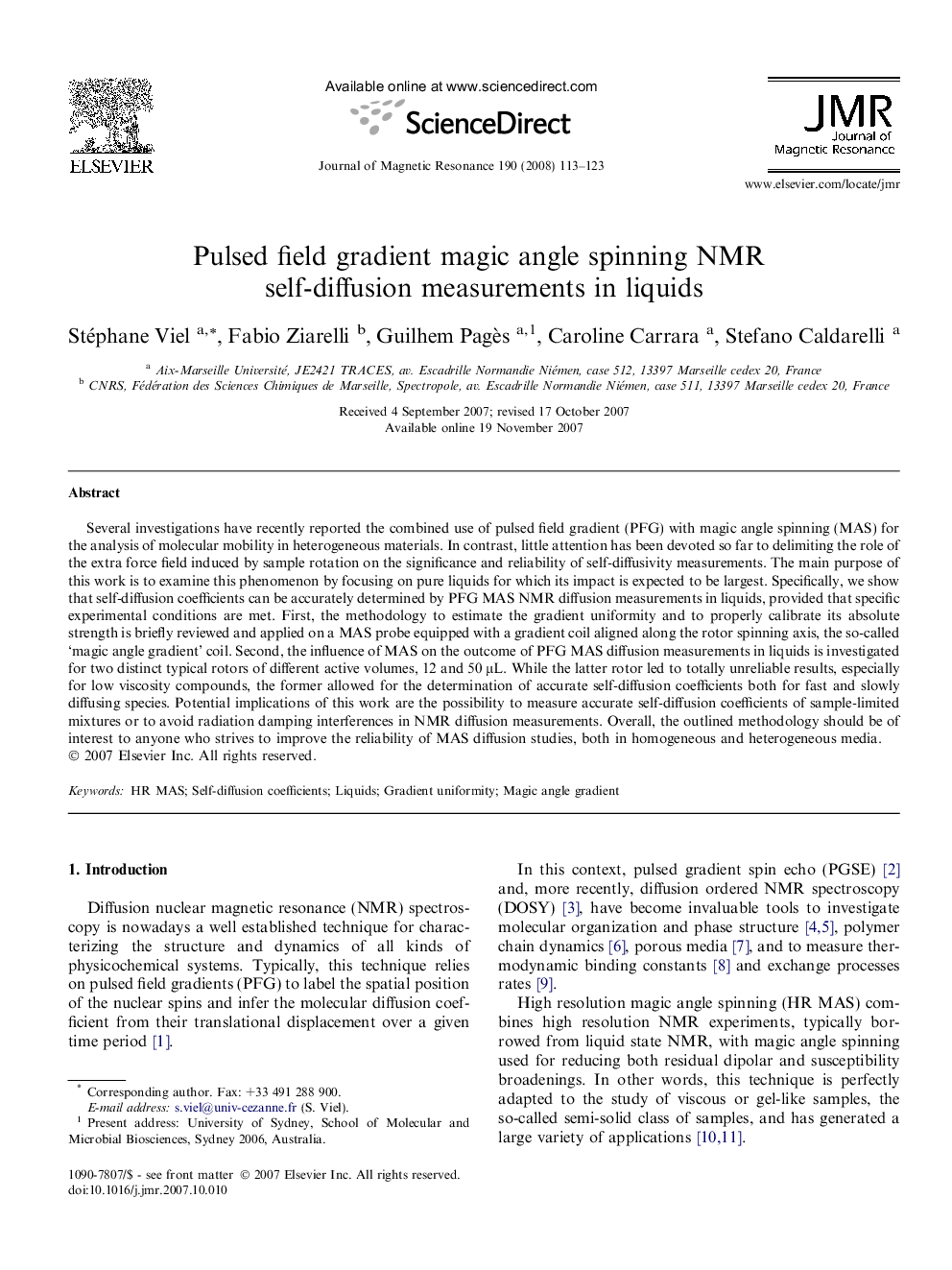| Article ID | Journal | Published Year | Pages | File Type |
|---|---|---|---|---|
| 5407405 | Journal of Magnetic Resonance | 2008 | 11 Pages |
Abstract
Several investigations have recently reported the combined use of pulsed field gradient (PFG) with magic angle spinning (MAS) for the analysis of molecular mobility in heterogeneous materials. In contrast, little attention has been devoted so far to delimiting the role of the extra force field induced by sample rotation on the significance and reliability of self-diffusivity measurements. The main purpose of this work is to examine this phenomenon by focusing on pure liquids for which its impact is expected to be largest. Specifically, we show that self-diffusion coefficients can be accurately determined by PFG MAS NMR diffusion measurements in liquids, provided that specific experimental conditions are met. First, the methodology to estimate the gradient uniformity and to properly calibrate its absolute strength is briefly reviewed and applied on a MAS probe equipped with a gradient coil aligned along the rotor spinning axis, the so-called 'magic angle gradient' coil. Second, the influence of MAS on the outcome of PFG MAS diffusion measurements in liquids is investigated for two distinct typical rotors of different active volumes, 12 and 50 μL. While the latter rotor led to totally unreliable results, especially for low viscosity compounds, the former allowed for the determination of accurate self-diffusion coefficients both for fast and slowly diffusing species. Potential implications of this work are the possibility to measure accurate self-diffusion coefficients of sample-limited mixtures or to avoid radiation damping interferences in NMR diffusion measurements. Overall, the outlined methodology should be of interest to anyone who strives to improve the reliability of MAS diffusion studies, both in homogeneous and heterogeneous media.
Keywords
Related Topics
Physical Sciences and Engineering
Chemistry
Physical and Theoretical Chemistry
Authors
Stéphane Viel, Fabio Ziarelli, Guilhem Pagès, Caroline Carrara, Stefano Caldarelli,
